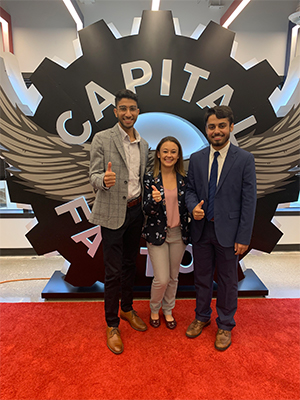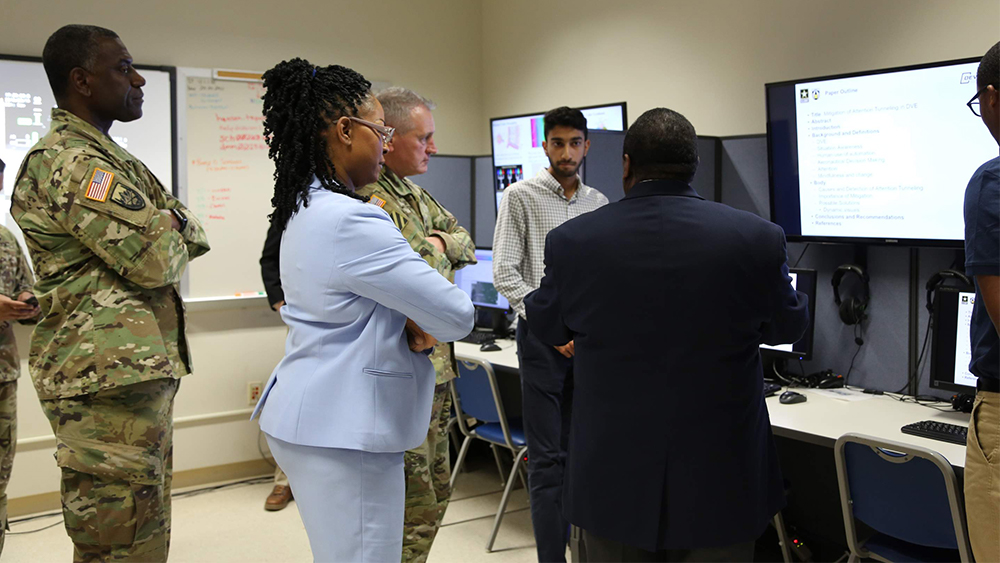
Many students participate in internships, but not all internships give students a chance to present a project to a four-star general. Three industrial engineering students from Texas A&M University had the opportunity of a lifetime to do just that with the U.S. Army Futures Command (AFC).
This summer the AFC, which is headquartered in Austin, Texas, had nine interns who worked at different Army Research Laboratories (ARL) across the nation. Later this year, ARL will be moving some of their research and development programs to RELLIS Campus.
The students spent the first two weeks of the internship visiting bases, learning about the Army and how research impacts the soldiers of today and the future.
“We were able to fly on Blackhawk helicopters and use simulators to get a feel for what it is like for a solider,” said Kiran Topiwala, junior industrial engineering major. “This helped me put myself in a soldier’s shoes.”
After their introduction, the students were sent to different Army Research Laboratories across the country to work on research projects for seven weeks.
Topiwala was sent to Alabama. His work focused on integrating human systems into rotorcraft – helicopters and other rotary-wing aircraft – in environments with poor visibility for pilots
“I made incredible connections during this internship and the opportunity to present in front of Army Futures Command leadership taught me a lot,” Topiwala said.

Jessica Patino, who graduated with an undergraduate degree in industrial engineering in May 2019, worked in Alabama on a project involving Army pilot training. She focused on virtual and augmented reality technology for pilots.
“I created a training scenario for pilots that simulated degraded visual environments such as sand, snow, smoke or rain,” Patino said.
Her project determined if more time should be spent creating high-fidelity environments – environments created in a simulation that are very realistic – or on effective and detailed mission objectives.
Patino knew that she wanted to work with the military but thought the only way she could do that would be through enlisting.
“This internship is an experience that allows civilians to work with the military,” she said. “The research being done by the Army Futures Command is directly affecting soldiers’ lives. The research I did this summer could save lives one day.”
After her internship, Patino was offered a full-time position to continue her research with the AFC. She accepted and will be continuing her research this fall.
“I have learned how important civilians are in the military and how much of an impact I am making as an industrial engineer for our current and future soldiers,” Patino said.
Syed Hussain, senior industrial engineering student, interned at the Army Research Laboratory West in California where he worked in the Human Object Identification Laboratory.
“I used my industrial engineering education to solve problems and think critically,” Hussain said.
At the end of the internship all of the students traveled back to Austin and presented their research to AFC leadership. This opportunity, along with the research they conducted, has made a lasting impact on the interns.
“I was blown away by how broad Army research is and how it can be applied to bring soldiers back home safely,” Topiwala said.